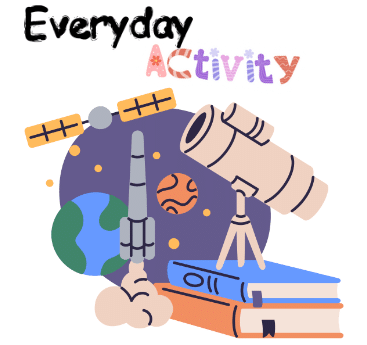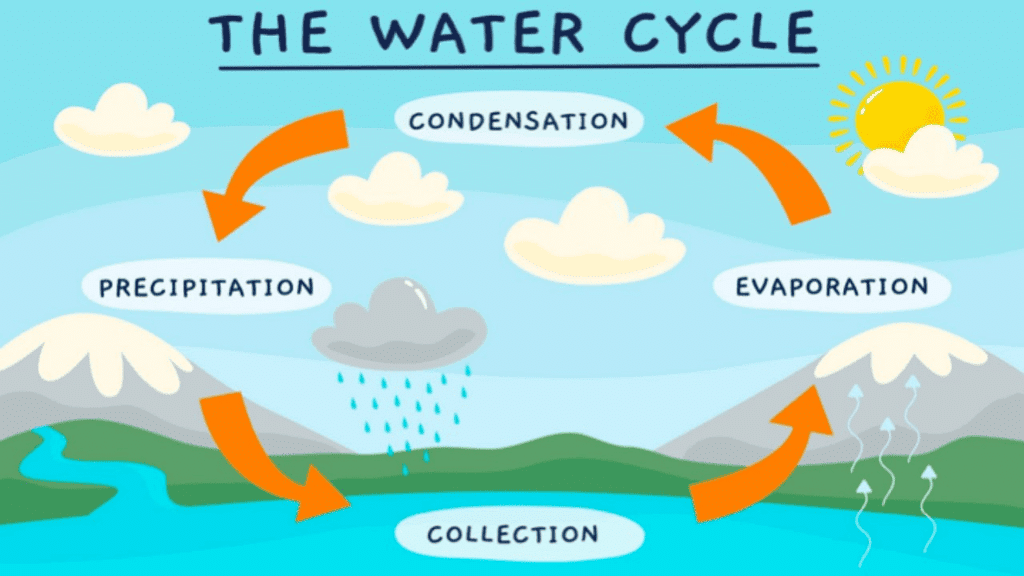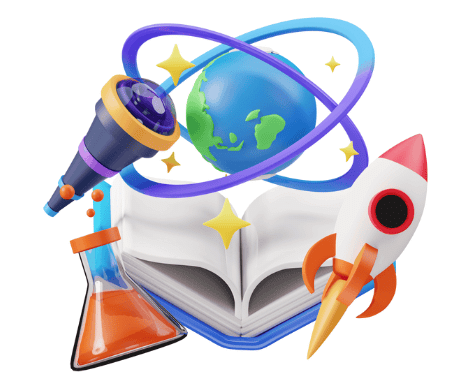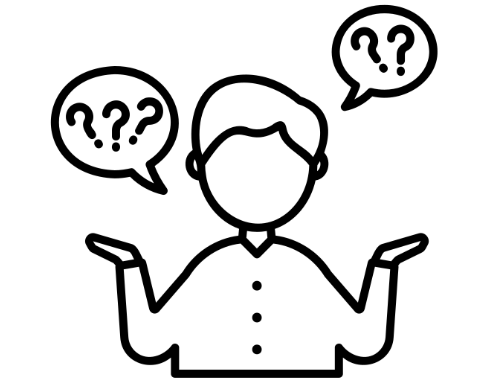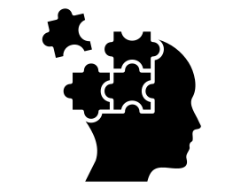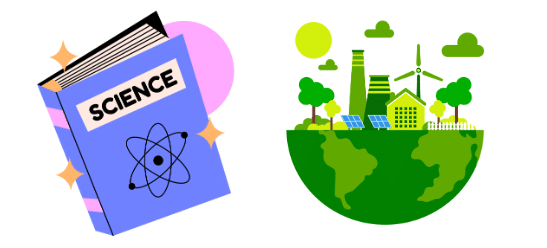MCQ & Extra Questions: The Wonderful World of Science | Science for Class 6 PDF Download
Extra Questions
Q1: What is the first step in the scientific method?
Observation.
Q2: Describe how Science is involved in everyday activities.
Science is involved in everyday activities like diagnosing why a pen stops writing, finding out why food spills, or understanding why a light bulb is not working. These activities use the scientific method to solve problems.
Q3: What are the steps of the scientific method?
The steps of the scientific method are observing something interesting, asking a question, making a guess (hypothesis), testing the guess through experiments, and analyzing the results.
Q4: How does science help us understand everyday phenomena, like why it rains?
Science helps us understand everyday phenomena by studying natural processes and forming explanations based on evidence. For example, science explains rain through the water cycle, where water evaporates, forms clouds, and falls back to Earth as precipitation.
Q5: Why is curiosity important in science?
Curiosity is important in science because it drives us to ask questions, explore the world, and seek answers, leading to discoveries and a better understanding of the universe.
Q6: How can working with others benefit scientific exploration?
Working with others can benefit scientific exploration by allowing us to collaborate, share ideas, and solve problems together, making the discovery process more enjoyable and effective.
Q7: What is the ultimate goal of studying Science?
The ultimate goal of studying Science is to explore, understand, and appreciate the world and the universe, and to continue discovering new things throughout our lives.
Multiple Choice Questions (MCQs)
Q1: What is Science primarily concerned with?
a) Mathematics
b) History
c) The world we live in
d) Literature
Ans: c) The world we live in
Science helps us understand and explore the world around us and the universe. It involves studying natural phenomena and discovering how things work.
Q2: What quality is most important for exploring Science?
a) Patience
b) Curiosity
c) Creativity
d) Speed
Ans: b) Curiosity
Curiosity is key in Science because it drives us to ask questions and explore new ideas to understand the world better.
Q3: How is Science described in relation to exploration?
a) Like a puzzle with no end
b) Like a routine task
c) Like a set of rules
d) Like a straightforward path
Ans: a) Like a puzzle with no end
Science is compared to a giant jigsaw puzzle where each discovery adds a new piece, and there is no end to what we can learn.
Q4: What does every new discovery in Science lead to?
a) A confirmed fact
b) More questions and further exploration
c) A finished project
d) A final answer
Ans: b) More questions and further exploration
Each new discovery in Science often leads to more questions and further exploration, expanding our knowledge.
Q5: What kind of questions does Science help us answer?
a) Questions about daily chores
b) Questions about the natural world and its processes
c) Questions about historical events
d) Questions about popular culture
Ans: b) Questions about the natural world and its processes
Science helps us answer questions about natural phenomena and how things in the world work, such as why stars shine or how plants grow.
Q6: What happens when new discoveries are made in Science?
a) They reinforce existing knowledge
b) They often change our understanding of the world
c) They are quickly forgotten
d) They provide definitive answers
Ans: b) They often change our understanding of the world
New discoveries can revise or change our understanding of how things work and the world around us.
|
69 videos|289 docs|27 tests
|
FAQs on MCQ & Extra Questions: The Wonderful World of Science - Science for Class 6
| 1. What are the different branches of science? |  |
| 2. How does the scientific method work? |  |
| 3. What is the importance of science in our daily lives? |  |
| 4. How does science impact society and the environment? |  |
| 5. What are some famous scientists and their contributions to the field of science? |  |

